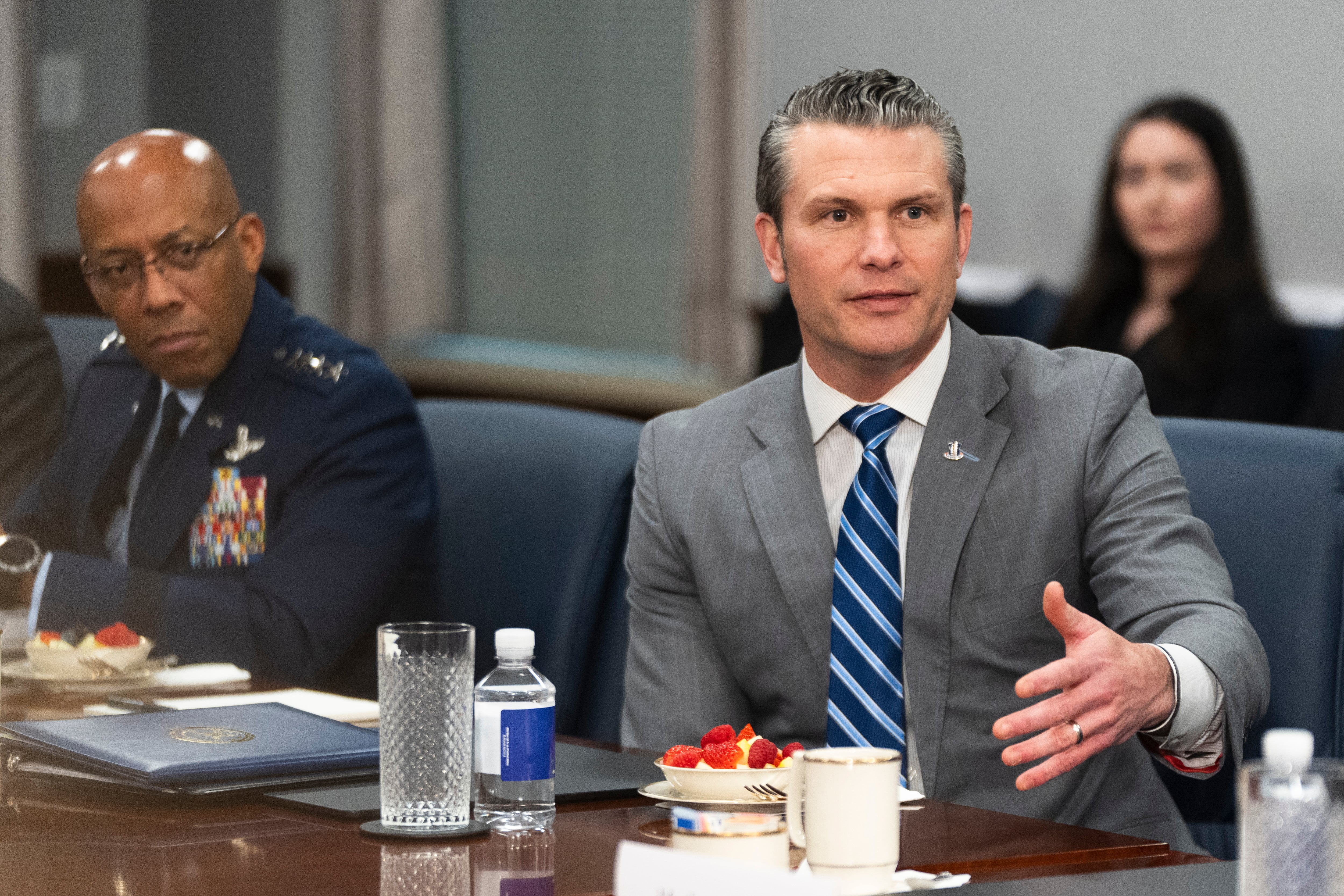The Defense Department is taking steps to begin the Trump administration’s promise to overhaul the department’s civilian workforce, and new DOD guidance has left some military advocates wondering just how far officials will go with privatizing programs and services on installations.
“All functions that are not inherently governmental (e.g. retail sales and recreation) should be prioritized for privatization,” Deputy Secretary of Defense Steve Feinberg said in an April 7 memo on restructuring its civilian workforce.
“I think it’s clear that the administration and DOD are interested in privatizing commissaries and other retail operations,” said Eileen Huck, acting director of government relations for the National Military Family Association. “We’ve historically been really cautious about proposals like that because there’s just no way, we think, a private entity could operate the commissaries profitably and still deliver the benefit to military families.”
And while retail stores are cited as examples of potential privatization, they represent a small portion of what could be a broader universe of functions considered “not inherently governmental” under the April 7 memo.
“I wouldn’t want to speculate as to how the department defines or interprets functions that are not inherently governmental,” Huck said. “I don’t know exactly what they mean by that, and it’s hard for me to interpret what other functions might be included.”
Privatization isn’t new on military bases. The services have privatized most of their family housing, while some unaccompanied barracks are managed by private companies. Bases offer a variety of morale, welfare, and recreation programs — such as fitness centers, golf courses and lodging — most of which are run by the military, but some are privatized. The Army, for example, has privatized its on-base hotels at 40 installations across the U.S. and Puerto Rico.
But some advocates argue a number of services, like child care and spouse employment programs, should be off-limits to privatization, saying they are too tied to service members’ readiness to be handed over to private companies.
RELATED

Commissaries and exchanges
Military stores are at the forefront of privatization examples. Various groups within and outside the Defense Department have proposed commissary privatization over the past several decades, eyeing the billion-plus dollars of taxpayer money used to operate the stores, but those proposals have been rejected as advocates defended the benefit.
“Commissaries are vital for food security, and it’s critical that they be imbedded in the DOD organic operations,” said Steve Rossetti, president of the American Logistics Association, an organization representing manufacturers and distributors who provide products to military resale operations. He cited a DOD report to Congress in September that underscored the importance of the commissary program in reacting to a crisis that could interrupt food to troops and families such as a port strike, pandemic, or chemical, biological or nuclear contamination caused by war.
Defense officials kept commissaries open during the COVID-19 pandemic, deeming them “mission essential.”
“Outsourcing is already taking place where it makes sense,” Rossetti said. “All the manufacturing and much of the distribution from source to shelf is private sector-operated. It’s only where it makes sense and yields benefits to the troops and the taxpayer where work is performed by the government.”
By law, commissaries must provide an average overall savings of 23.7%, compared to civilian grocery stores. To provide the savings, the stores rely on the annual appropriation of more than $1.4 billion in taxpayer dollars for the costs of operations. In 2022, then-Defense Secretary Lloyd Austin directed DOD to fully fund commissaries in order to cut costs at the register in an effort to help families with the rising costs of food.
On the other hand, military exchanges don’t use taxpayer dollars for their operations. They provide department-store goods at varying discounts. They also operate gas stations, convenience stores and liquor stores. Eateries ranging from Burger King to Panera Bread also have agreements with the exchanges to operate on many military bases. Military exchanges are also tasked with operating the school meal programs for school-age children at DOD schools on overseas military bases.
Exchange sales’ profits are used partly for store improvements and part of the profits are returned to installations to help fund morale, welfare and recreation programs.
Over the years, various proposals to consolidate the military exchanges have failed, as questions persisted about whether the cost to merge the stores would outweigh the benefit of a merger.
The Military Officers Association of America supports efforts to implement efficiencies in DOD, but recommends a thorough assessment of lessons learned from past privatization initiatives, said Jennifer Goodale, director of military spouse and family programs for the advocacy organization.
“It also remains essential that efficiency not come at the expense of military members and families,” Goodale said. “This is important for preserving the substantial progress made by Congress and DOD in improving quality of life for the all-volunteer force and their families.”
Dining halls
Privatizing military dining facilities could be an option to improve them, with some caveats, military officials said during a House Armed Services Committee hearing Wednesday. Rep. Cory Mills, R-Fla., citing the privatization reference in the April 7 DOD memo, asked whether dining facilities could operate more effectively, efficiently and predictably if they were handed over to the private sector.
Navy Vice Adm. Scott Gray, commander of Navy Installations Command, said he believes galleys could benefit from privatization. An exception, however, would be ships, where the feeding of sailors can’t be privatized while underway in a combat zone, he said.
Army Lt. Gen. Christopher Mohan, deputy commanding general for Army Materiel Command, said he believes the privatization of dining facilities with proper oversight could be beneficial, with the exception of overseas deployed operations.
Horace Larry, director of Air Force Services, said readiness and combat elements need to be considered in any effort to privatize Air Force dining facilities. “My vote isn’t in yet,” he said.
Although the Marine Corps hasn’t taken steps to fully privatize its dining facilities, a private contractor operates its mess halls in the continental U.S., according to Maj. Gen. Jason Woodworth, commander of Marine Corps Installations Command. He said he’d take the question to Marine Corps leadership for more input.
“Obviously there would be some significant benefits, but I would bet the costs would go up,” Woodworth told lawmakers.
Karen has covered military families, quality of life and consumer issues for Military Times for more than 30 years, and is co-author of a chapter on media coverage of military families in the book "A Battle Plan for Supporting Military Families." She previously worked for newspapers in Guam, Norfolk, Jacksonville, Fla., and Athens, Ga.





